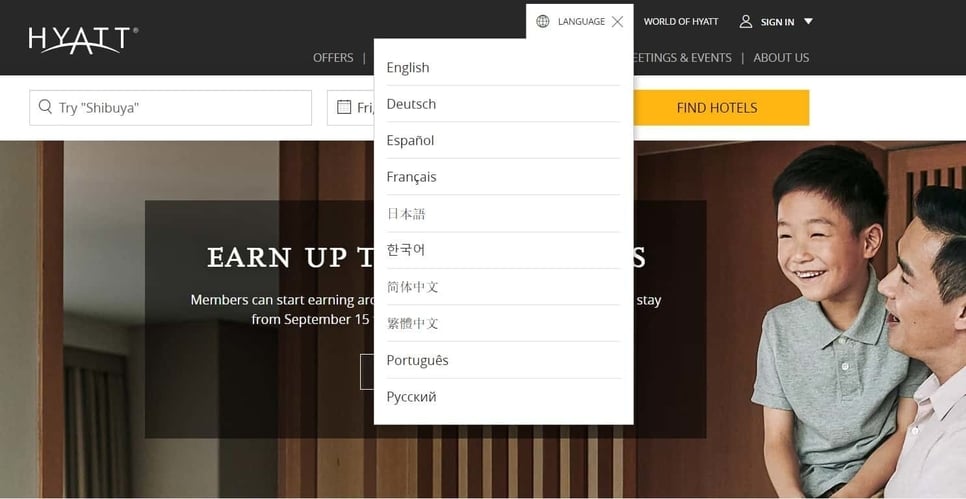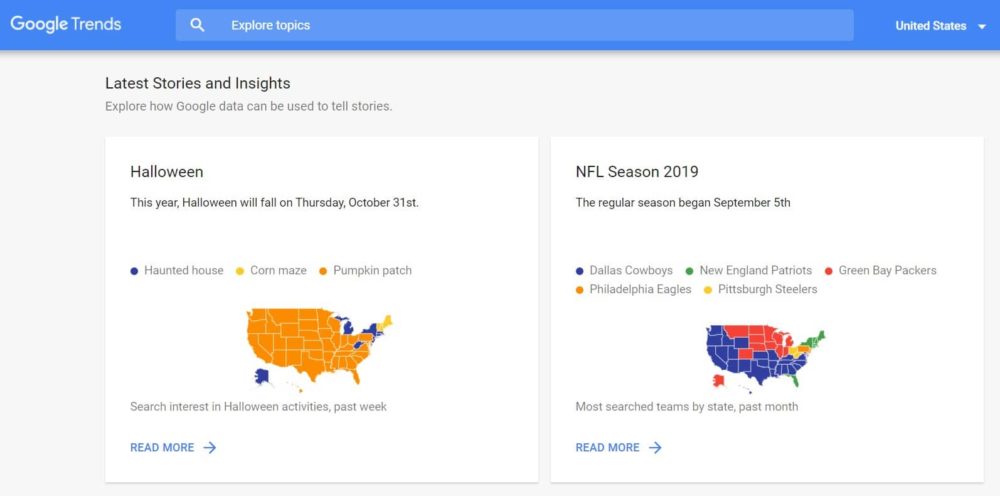Hello!
Going global is one of the best moves a company can make. Accessing different markets offers you the opportunity to spread your business and increase your chances of long-term success.
 Nowadays, with the help of technology, it becomes easier to take your business global. But what troubles some entrepreneur is how to approach their marketing strategy in that case. One of the crucial aspects of marketing is content marketing.
Nowadays, with the help of technology, it becomes easier to take your business global. But what troubles some entrepreneur is how to approach their marketing strategy in that case. One of the crucial aspects of marketing is content marketing.
Content marketing is one of the most effective ways to promote your business. It is your chance to win over the audience without physical contact. The thing is that some find that international audience just demands that you translate the existing content into new languages. Such an assumption can be harmful to your business.
The international audience deserves just as much dedication as you show to your local audience. For that reason, here are some tips that will guide you through the process of creating an international content marketing strategy.
If You Already Have Localized Content…
In case you’ve already stumbled into localization practices, here is one step that you need to complete above all else.
You need to determine how effective your current content is.
Why?
Well, if you add bricks to crocked foundation the establishment will collapse, right? That is exactly what will happen if you just pile up new content to a poor-quality one.
You are probably already aware of how successful your current localized content is. Do you have many subscribers? Does your blog attract many new leads? How many social media followers do you have? Which content is localized and which isn’t?
These are some of the questions that you need to answer in order to get the information you need.
Who Is Your Global Audience?
 It is safe to say that every marketer and business owner is aware of how important defining the target audience is.
It is safe to say that every marketer and business owner is aware of how important defining the target audience is.
Knowing your audience is the basis of every good content marketing. When you know for whom you are creating content, you can give them the content that matches their preferences.
The same applies to your international content marketing strategy. You need to know your target audiences. Did you know that only 20% of all Internet users are native-English speakers? Not to mention that 72.4% of consumers say that they would rather purchase a product with information available in their own language. This shows that choosing the right audience and the appropriate language matters.
Those who plan to spread across the border should consider which countries show interest in your niche. Check out your competitors (especially the highly successful brands) to see for which countries they have localized their content.
How Will You Present the Localized Content?
There are two options: have a global gateway for your current website or create different websites for different countries. The choice is all yours. If you choose to stick to your website, you need an option that will lead the users to their preferred gateway. Adding a global icon is possibly the best choice since it is noticeable but it doesn't affect your design negatively.
For example:
 Adding a little icon next to the "language" term helps the users who come across this website to recognize where they can choose their language of preference. What also works well is a flag icon.
Adding a little icon next to the "language" term helps the users who come across this website to recognize where they can choose their language of preference. What also works well is a flag icon.
Tailor the users’ experience on different gateways based on A/B testing and cultural relevance studies.
The other option is to create different URLs for each country. This means that you have a blank space for coming up with a completely new experience.
Take P&G as an example and their websites for UK and USA market which are completely customized for the targeted country.
Localize, Don’t Translate!
There is a huge difference between the two.
The translation is simply converting content from one language to another. On the other hand, localization is adjusting the content to target audiences' culture. Having your content just translated can seem like the easiest solution, but it can harm your business. You can spend lots of money on translation that your target audience won't like.
Not every country has the same puns, jokes, customs, holidays, etc. Adapt to your target audience of different nationalities by localizing the content. If you plan to hire someone for the process, make sure that they have a specific option for localization. For example, The Word Point offers both translation and localization services.
Emphasizing that you need localization, not just translation will eliminate any confusion.
Work with Native Speakers
Natives can be very useful for creating a highly effective marketing strategy for each country. Just think about it. Who is more qualified to talk about his people’s preference than a native?
 They can give you some insight into what works best for that target audience, how to approach content promotion and many helpful tips on content strategy.
They can give you some insight into what works best for that target audience, how to approach content promotion and many helpful tips on content strategy.
Working with marketers from targeted countries is the smartest choice. Marketers’ job is to know what works best for the audience in their countries so they can tell you which aspects of the content you need to be careful about.
If you’ve attended or plan to attend international seminars for your industry, get to networking and create relationships that can benefit this process. Another solution is to hire a freelancer that is a bilingual marketer in that country with whom you can cooperate when needed. Use sites such as Quasa Connect to set a job post and send proposals to fitting candidates.
Identify Topics of Interest
What you also need to consider is that not all countries are interested in the same topics. Depending on their culture, customs, and beliefs, their points of interest will differ.
 Each country that you target or each nationality should be researched. Collect the information on what interests them the most.
Each country that you target or each nationality should be researched. Collect the information on what interests them the most.
What you can also come across is their pet peeves or wording that they find offensive. You need to be extra careful about how you approach content creation for each nationality since their perceptions of certain terms can differ.
For finding trending topics that you can use for blog posts, for example, use Google Trends. This online solution will provide you with information on the hottest topics in any country that interests you.
What can be useful for this search is to check out the competitors’ websites and the users’ comments on their posts. In that way, you’ll get inside the users’ thoughts and find out which topics they prefer.
Localize the SEO
 You might already know this, but SEO is one of the most important content marketing elements. You can invest all your time and money into creating the best content but if users can’t find it, what’s the point? Localizing your existing content is one aspect of localization, but SEO localization is another. It is a must if you want to get more leads to your localized content. Let’s suppose that you translate your content from English to French. You take into consideration their culture, customs, and appropriate wording. But once the French reader clicks the link it leads him to a page in English. This can completely ruin the experience.
You might already know this, but SEO is one of the most important content marketing elements. You can invest all your time and money into creating the best content but if users can’t find it, what’s the point? Localizing your existing content is one aspect of localization, but SEO localization is another. It is a must if you want to get more leads to your localized content. Let’s suppose that you translate your content from English to French. You take into consideration their culture, customs, and appropriate wording. But once the French reader clicks the link it leads him to a page in English. This can completely ruin the experience.
That is why you need SEO localization. Focus your SEO localization efforts on the following:
- Adapt the links that you include in the content (both internal and external)
- Create a source language termbase (Find equivalents for products keywords, transactional keywords, brand keywords, etc.)
- Keep your keyword density below 2.5%
- Adapt the translated headlines and subheadings to include source language keywords
- Localize the images’ ALT text
Adapt Social Media Platforms
Social media is an inevitable part of content marketing. The popularity of social media across the globe encourages marketers and business owners to put extra effort into creating interesting social media posts.
The thing is that not every country shares an interest in the same social media channels. They also won’t understand the posts if you only feature them in one language. For that reason, during the localization process, you also need to localize your social media profiles.
You can create different social media profiles for different audiences. This will allow you to customize the posts to their preferences and run separate and personalized social media marketing campaigns.
 However, if you want a simpler solution, just adapt your current social media profiles. That would mean that for example, your Instagram posts should contain descriptions and hashtags in all targeted languages.
However, if you want a simpler solution, just adapt your current social media profiles. That would mean that for example, your Instagram posts should contain descriptions and hashtags in all targeted languages.
For Facebook, you can use their localization option which makes it easier for users to read your posts in their target language.
Keep in mind that if you use the same social media profiles that would mean that you need to put an extra effort to create posts that would appeal to people of different nationalities.
Are You Ready to Develop Your International Content Marketing Strategy?
Localization isn't just an aspect of content marketing. It demands the same attention and strategic moves as your initial content marketing. Depending on your target audience, their preferences can differ a great deal or they can be quite similar. Your content strategy needs to consider and reflect those preferences for content creation.
If you follow the above-mentioned steps, your path to international content marketing will be less struggling and more successful. Take every aspect of this new challenge seriously and give your best to create the content that every nation will love.
Below we have collected a number of interesting articles that almost completely cover all the current problems of promotion and optimization; add them to your bookmarks and keep them always at hand:
- 6 Ways to Promote Your Content on Social Media That Have Been Neglected
- 10 Content Marketing Tactics for your Startup Blog
- Common Social Media Marketing Mistakes to Avoid
- What is Influencer Marketing and How to Work with Social Media Influencers?
- TikTok SEO: A Simple Guide to Rank Your Videos
- WooCommerce vs. BigCommerce – What’s Better for SEO?
- Which Link Building Strategy Is Best For SEO?
- Intro to SEO: Terminology and Metrics
- What is Orphaned Content And How It Can Affect Your SEO?
- How Does Website Security Affect Your SEO
- 6 Affordable Cities for Digital Nomads to Live and Work In
- The Impact Of Digitalization In Entertainment
- Tips That Will Help You Navigate the Digital World Safely
- The Widening Digital Divide Cuts People Out of AI and Automation Careers
- 5 Tools To Improve Your Digital Back Office
- The Digital Transformation of Education
- Top 5 AI Applications Marketers
- How Social Media Marketers Are Using AI To Improve Their Performance
- Demand Generation vs Lead Generation – How They Differ & Why It Matters?
- Top 9 WordPress Lead Generation Plugins
- 8 Steps To Master Attraction Marketing and Skyrocket Your Lead Generation Strategy
- Fascinating Risk Management Tactics That Can Help Your Business Grow
- 3 No-Cost Marketing Tactics You can use Right now to Bring in More Sales
- 10 Tactics to Do SEO for Contractors
- 7 Effective Tactics For Humanizing Your Brand (With Examples)
- Top 5 Healthcare Content Marketing Tactics
- Building Powerful Tactics
- 10 Tactics to Do SEO for Higher Education
- Test Data Management: Strategies for Efficient and Effective Testing
- Reasons You Should Invest in a High-Quality Document Management Software
- What You Need To Know To Improve Your Contract Lifecycle Management
- Virtual Cards and Its Advantages to Business Employees
- 4 Ideas to Make Company Virtual Events Fun for Employees
- 7 Unique Year-End Appreciation Ideas for Your IT Employees
- 5 Strategies To Create An Effective Employee Training Program
- Prioritizing Employee Mental Health: Why It Matters For Business Success
- How to Inspire the Next Generation of Tech Entrepreneurs
- Best Security Tips For Start-Up Entrepreneurs
- Top 10 Startup Ideas You can Steal from Successful Entrepreneurs
Thank you!
Subscribe to our newsletter! Join us on social networks!
See you!






